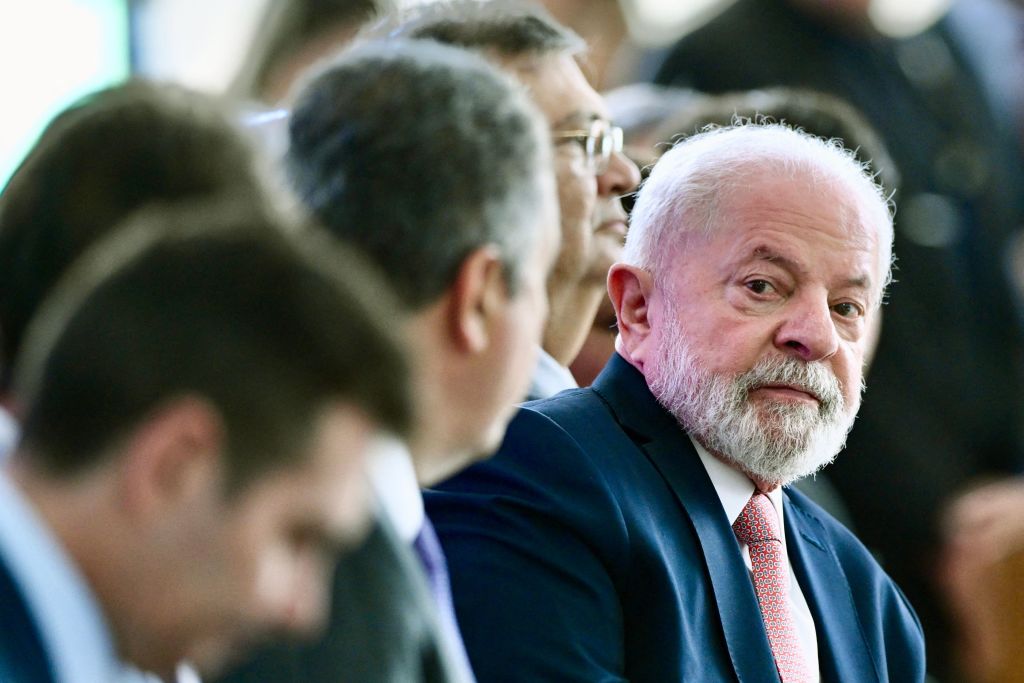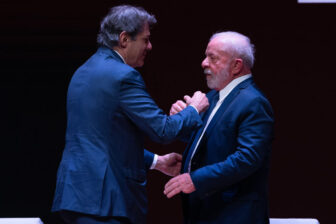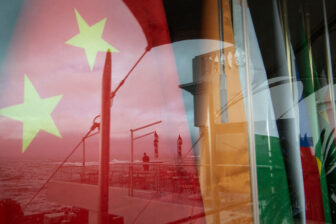On the very same day as the appalling attacks by Hamas on Israel, Brazilian President Luiz Inácio Lula da Silva went public with an unequivocal condemnation of the events and presented condolences to the victims’ families. He didn’t attempt to hold one side or the other responsible. Instead, he pledged that Brazil would spare no effort to prevent an escalation and called upon the international community to work towards an immediate resumption of negotiations—one that guarantees the existence of an economically viable Palestinian state coexisting peacefully with Israel, with secure borders for both sides.
Lula’s reaction was permeated by the spirit of constructive dialogue and the longstanding Brazilian position supporting a two-state solution. The circumstances and Brazil’s current role on the global stage represent a new test for his desire to have a decisive voice on complicated international matters. So far, he has pursued a balancing act. On the day of the Hamas attacks, Lula talked on the phone with Israeli President Isaac Herzog and with the president of the Palestinian Authority, Mahmoud Abbas, condemning the atrocious events, calling for civilian protection, a humanitarian corridor, and the release of hostages. Days ago, at the United Nations Security Council, Lula introduced a draft resolution echoing these appeals, making use of the prominence lent by the fact that this month, Brazil holds the rotating presidency of this organ, entrusted with preserving international peace and security. On October 18, the Security Council vetoed the Brazil-led resolution. The United Kingdom and Russia abstained, while the U.S. voted against the text, noting that the resolution did not mention Israel’s right of self-defense.
Major players in the West, like the United States, France, Germany, the United Kingdom and Italy have unequivocally censured the attacks on Israel. Although most countries from the postcolonial world also issued condemnations, the Global South is divided. Many made pro-Palestine statements (e.g., Bangladesh, Indonesia, Malaysia and South Africa), while others leaned towards Israel (e.g., India and Kenya). Lula set out to take an explicitly middle course—and there are reasons for his taking this posture.
Many Brazilians were caught in the middle of the conflict on the ground. Around 14,000 Brazilians live in Israel, and 6,000 in Palestine, and three Brazilians were killed by Hamas’ attacks. As for now, over 900 Brazilians have been repatriated from Israel. Bringing back Brazilians from Gaza involves great logistical complexity due to ongoing Israeli attacks in the region and the need to coordinate with Egypt. Still, Brazil is working on this front, too. For Lula, alienating one of the sides would make securing a safe return of Brazilian citizens from the region costlier—a position echoed in comments from Celso Amorim, special advisor to the president on foreign affairs. “We’re engaged in saving the lives of Brazilians first, which requires wide dialogue,” said Amorim.
A diplomatic player
Another compelling explanation for Lula’s approach lies in Brazil’s intricate web of domestic political dynamics. The Israel-Palestine conflict deeply divides Brazilian society between left (predominantly pro-Palestine) and right (largely pro-Israel)—from college campuses and student associations to Congress. As a longtime leader of the Brazilian left, Lula cannot alienate his left-wing constituency. At the same time, he cannot alienate the massive evangelical base that, for religious reasons, have assumed a pro-Israel stance. Although we cannot say all of them support Israel, most do, and they make up 30% of the population in Brazil. Many Brazilian citizens rescued in Israel and brought back to Brazil were Evangelical Christians visiting the Holy Land. Striking a balance seems to be Lula’s best option at this point.
Brazil’s diplomatic tradition is another force motivating Lula’s behavior. Since 1967, Brazil has generally maintained an equidistant approach towards the major players in the conflict and has supported the two-state solution, recognizing the legitimacy of Jewish and Palestinian national movements and working towards an arrangement where Israel and Palestine would live side by side, sharing borders in peace and security. The only break with this approach happened under President Jair Bolsonaro, who tried to align Brazil’s foreign policy with Israeli Prime Minister Benjamin Netanyahu’s. But Bolsonaro can be said to represent the exception that proved the rule. Against this backdrop, Lula’s approach can be seen as a continuation of longstanding foreign policy traditions.
Finally, there is Lula’s diplomatic style. His foreign policy, during his first two terms in office, from 2003-2010, showcased his ambition to become a major diplomatic player. He spearheaded significant diplomatic agreements and explored broader engagement in international fora. His most ambitious effort was in the Middle East, with the attempt in May 2010 to broker a nuclear deal, also known as the Tehran Agreement, between President Mahmoud Ahmadinejad of Iran, Turkish Prime Minister Recep Tayyip Erdogan and US President Barack Obama. Now, Lula seems to be seeking to preserve his ability to moderate between the sides of the conflict in Israel and Palestine.
Lula hasn’t been able to sustain a balanced approach on another thorny international issue: Ukraine’s invasion. That recent experience raises the question whether he can keep walking a fine line if the conflict escalates, potentially evolving into a Middle East regional war, including other neighboring countries or Hezbollah.
This article was updated to reflect the October 18 UN Security Council vote.








